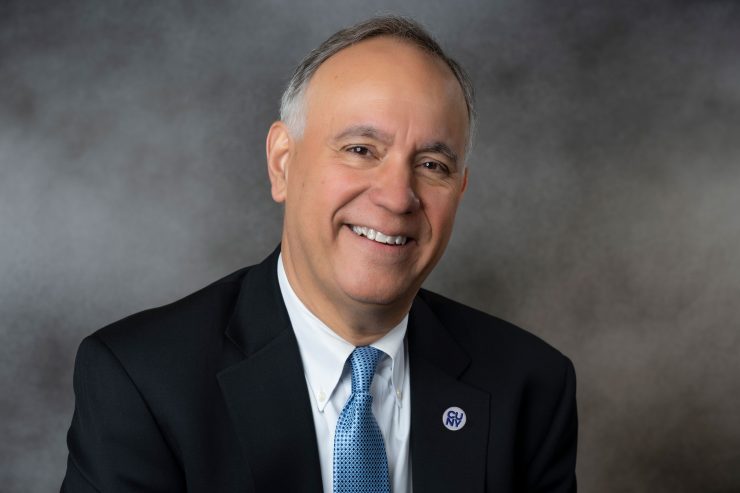The Census 2020 count may be the most important and challenging population survey that our country, state and city have ever undertaken. New York has historically been undercounted, but this decennial tally is taking place under particularly challenging circumstances.
Undercounting can deprive us of our rightful representation in Congress along with millions of dollars in federal support for public education. Census data impacts funding for the federal Pell Grant program, adult education grants and a host of other services that are vital to CUNY and other institutions of higher education. The importance of achieving a fair and complete count of every New Yorker has prompted the state and city governments to commit significant resources and coordinate stakeholders. On Martin Luther King Jr. Day, Gov. Andrew M. Cuomo announced the creation of the Census Council, co-chaired by Martin Luther King III, Lucy Liu and Lin-Manuel Miranda, to act as the state’s coordinating arm in the effort.
The law is that every person should be counted, regardless of citizenship or immigration status. But the current climate of fear within immigrant communities poses a challenge to that goal; it is a concern that hits close to home for New York and especially for us at CUNY. More than a third of our students were born outside the country. They and their families live in communities that our own faculty experts tell us are designated “hard to count,” which include highly mobile people, non-native English speakers, undocumented immigrants, people of color, low-income people and students.
Fortunately, CUNY students, who reflect the full range of New York City’s diversity, are uniquely positioned to help achieve a fair and accurate census count. A team of 220 students, two thirds of whom speak a language other than English, were being trained this month, even before the spring semester started this week, to be deployed as part of CUNY Census Corps. They will work in paid part-time positions from January to end of May, getting out the count at CUNY colleges and venturing into the hardest-to-count neighborhoods to ensure that the people who live in those communities are acknowledged and counted.
Participation in this mission-critical task will enable CUNY students to develop their leadership, problem solving, teamwork and communication skills. Equally important, they will learn firsthand the vital importance of civic engagement — a core value of public higher education.
Our efforts are being guided by CUNY data resources, including a mapping tool created by our Center for Urban Research at the CUNY Graduate Center that is being widely used in census outreach efforts across the country.
CUNY is also proud to be working closely with NYC Census 2020 to administer and oversee the contracts that have been awarded to more than 150 community-based organizations that will be at the frontlines of this year’s census-related education and organizing.
The key to a complete census count is a determined, full-scale and efficient partnership among the leaders of New York State and City and their institutions. CUNY is proud to be an important part of this partnership. We are working closely with all our government and civic partners to carry out this very consequential endeavor.
Félix V. Matos Rodríguez is the chancellor of the City University of New York, the nation’s largest urban public university, serving over 500,000 students of all ages in seven community colleges, 11 senior colleges and seven graduate or professional institutions. Visit cuny.edu.






























